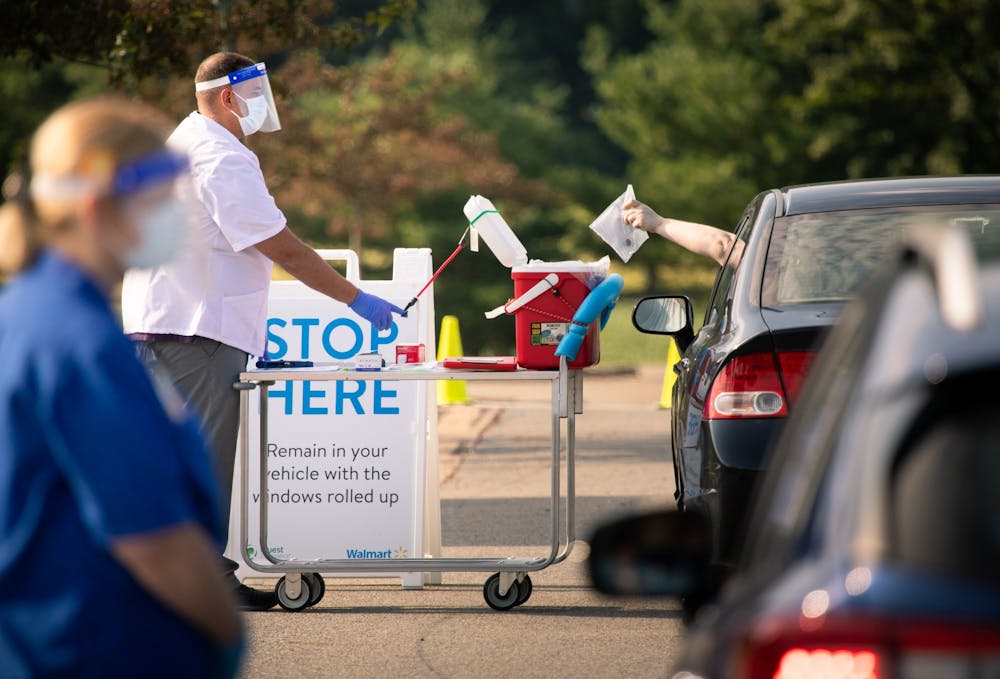Last April, as the spring semester wound to a close, I wrote a column titled “This isn’t normal,” urging people to give themselves space to process the tumultuous events we had all experienced. Six months later, as we stand halfway through fall semester, the pandemic has only worsened — and yet the University acts as if we’ve all returned to normal.
Our daily routines reveal how wrong that is. Rather than gathering in lecture halls, we check into classes from our bedrooms in our parents’ houses, apartments shared with friends, or dorms. We interact with classmates in little boxes on a screen rather than around a seminar table. Socialization requires even more Zoom calls, and no longer is it possible to bump into friends and acquaintances while walking down Washington Road or Elm Drive.
Meanwhile, the world is collapsing around us. Over 200,000 Americans have died from COVID-19. One out of 1,000 Black Americans has died. Millions more have been infected, including the President and the First Lady. The long-term effects of the virus are completely unknown. And yet the Trump administration has shown little interest in containing the pandemic or helping people get through it.
This still isn’t normal.
Nevertheless, the typical expectations of a Princeton semester remain, intensified by the new shortened calendar. We head into midterms without a real fall break to look forward to. Even without the ability to travel, a week to decompress after a taxing couple of months would help everyone reset before the next stretch.
The absence of small joys that seem trivial in the grand scheme of things, like Lawnparties, means a lack of chances to relieve stress and escape work, even for an afternoon. Now, when my bedroom is my library and my classroom, it is nearly impossible to set aside assignments and assessments and take a break. The most difficult part of the semester has been the constant stream of work, weekends included. We need a week off.
I don’t blame professors for this stressful situation — they are also juggling the demands of this unique semester and adjusting to remote teaching. Many are working from home with their own kids, who are themselves trying to adapt.
But doesn’t the fact that we are all struggling mean we should just hit pause? What would a Princeton semester look like if we actually adjusted to the insane moment we are living through, rather than trying to push forward? If we all recognized that no one is at their best, and that some things are more important than deadlines or exams? What if we made this a semester about learning rather than testing, about growth rather than grades? What if we just stopped acting like everything is normal?

I think universal pass/D/fail would still be ideal, as it shifts the burden away from students as individuals and allows us to avoid the stress of a graded semester without having to explain ourselves. Although I understand the arguments about grades improving post-graduate opportunities for students, I do think higher education as a whole should have continued the universal pass-fail systems many schools implemented last semester, so no students from any one university were at a disadvantage when applying for graduate schools.
But even with a graded semester, adjusted expectations could allow faculty and students to adapt to the pandemic environment. Less emphasis on exams and more flexibility in types of assessments would facilitate an experience more focused on learning, rather than typical exams in which success relies on having conducive work environments. Course material that directly engages with current events, whether that be the election cycle, the pandemic, or racial justice activism, would make our academic lives feel less siloed from the real world and more relevant to the student body’s everyday concerns.
During this virtual semester, I am enrolled in some of my favorite courses I have taken at Princeton. But despite my interest in the material, this has been a uniquely challenging month and a half. And it’s been so challenging because we are expected to act like the world is normal when it is so evidently not. We need to stop pretending.
Julia Chaffers is a junior in the Department of History from Wellesley, Mass. She can be reached at chaffers@princeton.edu.









